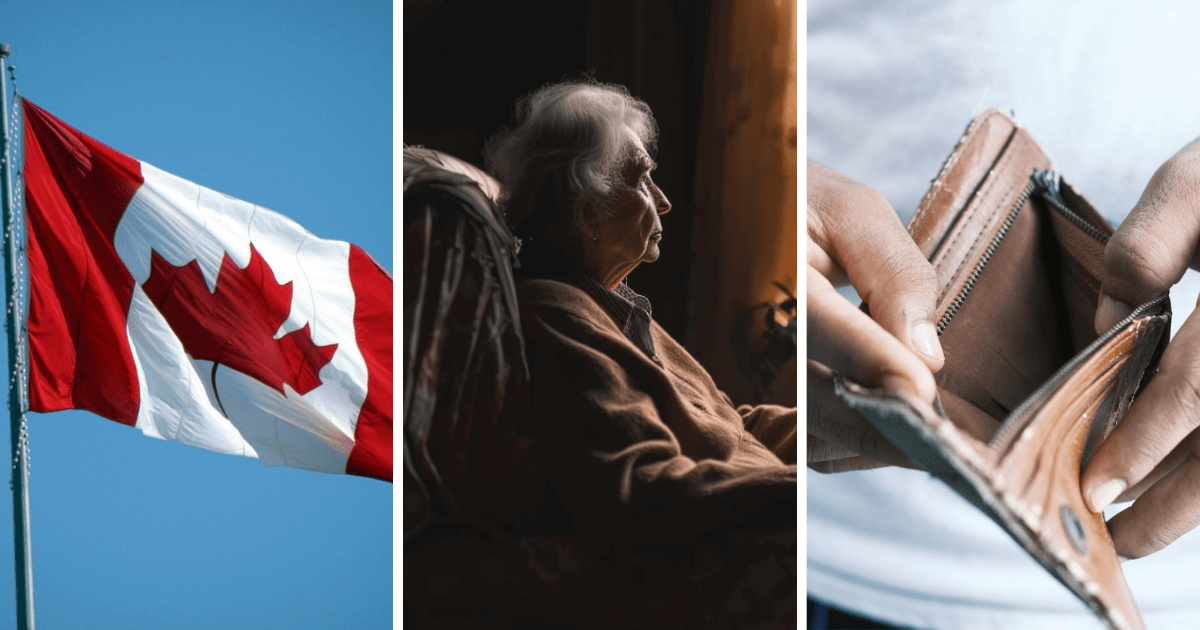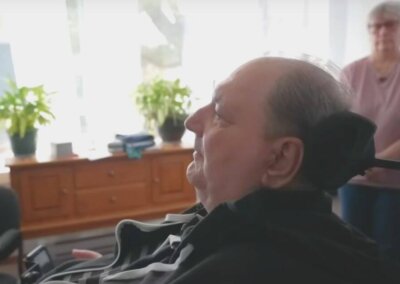Poor and vulnerable Canadians are choosing assisted suicide and euthanasia under Medical Assistance in Dying (MAiD) because of socioeconomic circumstances, a new report from Ontario has revealed.
The first official report on euthanasia and assisted suicide in Ontario, Canada: the ‘MAiD Death Review Committee Report’, in which 16 experts from various disciplines reviewed MAiD deaths in Ontario, found that vulnerable people face “undue influence” and “potential coercion”.
The report shares some disturbing accounts, such as that of Ms B in her 50s who suffered from multiple chemical sensitivity syndrome (MCSS) and a history of serious mental health difficulties. The state was unable to secure housing for her medical needs and “[a]s a result of her housing situation and conditions, necessary to address her MCSS, Ms. B experienced social isolation, which greatly contributed to her suffering and request for MAiD”.
Responding to Ms B’s request for MAiD, some of the committee members “cautioned that a social issue, housing, was at the forefront of this request, not in keeping with a medical condition” and some “feel that MAiD is not a solution for all society and policy failures, furthering social injustices”.
Most of the committee “agreed that the MAiD process should give way to urgent social services intervention and maximize supportive healthcare options to reduce symptoms and suffering prior to proceeding with MAiD”.
Concerns about “potential coercion” or “undue influence”
In another account, Mr A, a man in his 40s struggling with mental health issues and addictions, was suffering from inflammatory bowel disease and relied on family for housing and financial support. He was offered MAiD during a psychiatry assessment. Mr A. was then driven to an “external location” where MAiD took place, which “raised concern” among some of the committee that this may create pressure and perception of “hastening a person towards death”.
The report said “members identified that introducing MAiD to patients, particularly when they are not approaching their natural death, raises concerns of the impact on voluntariness, given the power imbalance in a healthcare provider and patient relationship (e.g., framed in terms of potential coercion or undue influence)”.
They also noted data showing that a disproportionate number of non-terminally ill people who died by “assisted dying” came from Ontario’s most marginalised areas.
These accounts follow similar patterns to others’ stories, such as disabled Canadian Amir Farsoud, who requested MAiD in November 2022 because of his “dire housing situation” and because he was unable to find affordable, suitable accommodation. He felt he had to choose between death and homelessness. The doctor approved Farsoud for MAiD on the grounds of ‘unbearable suffering’.
“I did tell my doctor right off the bat that while I qualify for medical reasons, the reason I’m asking is my socio economic position at the moment”, he said. Eventually, Farsoud was saved by a crowdfunding campaign, which enabled him to find new housing.
He condemned the situation, saying “I think it’s horrible, whether it’s ethical or not, but I think it’s backwards. I think in a country such as ours, people shouldn’t be hungry and shouldn’t be worried about whether there’s a roof over their head”.
A warning for the UK
The committee is also warning the UK about assisted suicide as MPs prepare to debate Labour MP Kim Leadbeater’s Terminally Ill Adults (End of Life) Bill next month. Ontario doctor Ramona Coelho, a member of the committee, referred to the examples above, warning “The UK should not assume it will manage this better or avoid potential pitfalls”.
She added “With the legalisation of MAiD, real lives are at stake and the dangers of a slippery slope are very real. When Canada legalised assisted suicide and euthanasia under MAiD in 2016, Canadians believed it was intended to be a rare, last-resort measure, reserved for consenting adults enduring intolerable suffering at the end of life … British legislators have to consider how easily assisted dying can be expanded, how easily abuses can go undetected.”
Dr Coelho’s warnings of a “slippery slope” are backed up by concerning statistics from Canada. In 2021, the Canadian Parliament repealed the requirement that the natural death of those applying for euthanasia or assisted suicide be “reasonably foreseeable”. This took place only five years after the original legislation allowing euthanasia and assisted suicide, which was passed in 2016.
Since then, the number of people ending their lives by assisted suicide or euthanasia has increased significantly. In 2022, the number of people who ended their lives by euthanasia or assisted suicide increased by 31.2% from the previous year, accounting for 4.1% of all deaths in Canada.
Legislation was introduced in February 2024 so that euthanasia and assisted suicide would become legal on the grounds of mental health alone in March 2027.
Spokesperson for Right To Life UK, Catherine Robinson, said “This disturbing report confirms that Canada’s assisted suicide programme has been an utter disaster from day one and it is particularly bad news for those who are poor and vulnerable”.
“It would be naive to believe that some of the terrible accounts mentioned in the report will not become a reality in the UK if Leadbeater’s Bill becomes law. MPs should listen loud and clear to these warnings and take every step to ensure her dangerous Bill is scrapped as soon as possible”.












